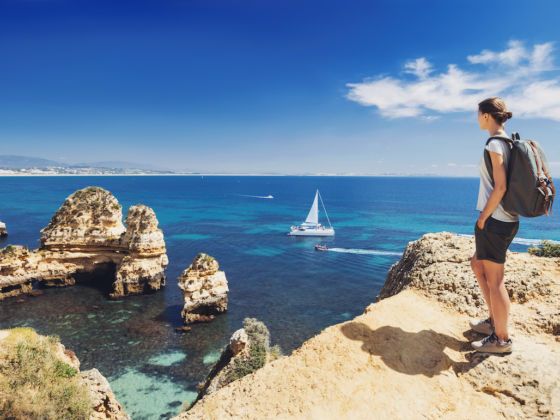Editor’s note: A version of this article was previously published on June 8, 2020, and was updated on July 8, 2020, in light of the EU travel ban.
Summer travel was starting to feel like a distant memory when Portugal announced its plans to welcome back tourists this June. And not just because last summer’s getaways are already a year behind us. As COVID-19 brought international travel to a standstill this spring, any hope of going abroad in the ensuing months has seemed as distant as the big, bright star our planet orbits in a year.
